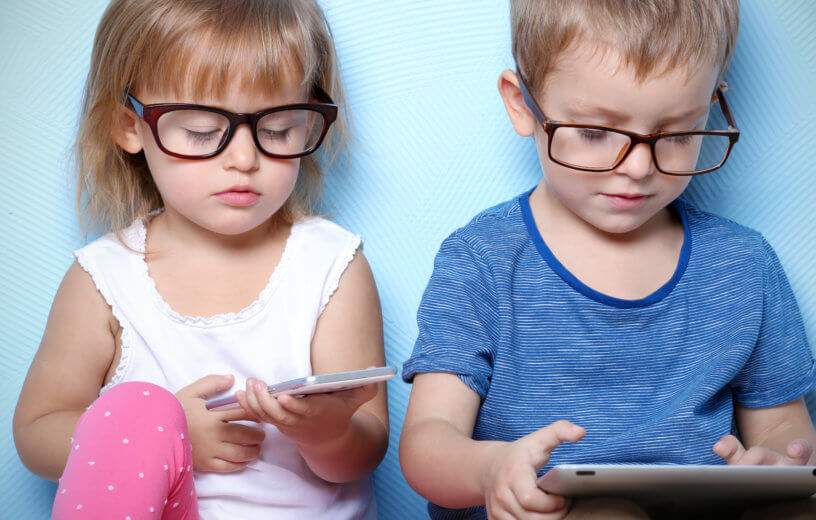ANN ARBOR, Mich. — Using smartphones and other digital devices to pacify young children can backfire and end up stifling their emotional development, a new study warns.
Researchers at Michigan Medicine say digital technology may help calm down toddlers in the short term, but it could also reduce their chances to practice emotional coping skills. Scientists add that handing a moody pre-school age child a screen may seem to offer a quick fix, yet it could also lead to more severe challenging behavior further down the line.
The findings of the study, published in JAMA Pediatrics, show that frequent use of smartphones and tablets to calm upset children between three and five years-old led to increased emotional dysregulation in kids, particularly in boys.
“Using mobile devices to settle down a young child may seem like a harmless, temporary tool to reduce stress in the household, but there may be long term consequences if it’s a regular go-to soothing strategy,” says lead author Jenny Radesky, M.D., a developmental behavioral pediatrician at University of Michigan Health C.S. Mott Children’s Hospital, in a media release.
“Particularly in early childhood, devices may displace opportunities for development of independent and alternative methods to self-regulate.”
This could backfire among boys and those with ADHD
The study involved 422 parents and 422 three to five-year-old children. The research team analyzed parent and caregiver responses to how often they used devices as a calming tool and associations to symptoms of emotional reactivity or dysregulation over a six-month period. Signs of increased dysregulation could include rapid shifts between sadness and excitement, a sudden change in mood or feelings and heightened impulsivity.
The findings suggest that the association between device-calming and emotional consequences was particularly high among boys and children who may already experience hyperactivity, impulsiveness, and a strong temperament that makes them more likely to react intensely to feelings such as anger, frustration, and sadness.
“Our findings suggest that using devices as a way to appease agitated children may especially be problematic to those who already struggle with emotional coping skills,” Radesky says.
She says that the preschool period is a stage when children may be more likely to exhibit difficult behavior, such as tantrums, defiance, and intense emotions. That may make it even more tempting to use devices as a parenting tool.
“Caregivers may experience immediate relief from using devices if they quickly and effectively reduce children’s negative and challenging behaviors,” the researcher continues. “This feels rewarding to both parents and children and can motivate them both to maintain this cycle.”
“The habit of using devices to manage difficult behavior strengthens over time as children’s media demands strengthen as well. The more often devices are used, the less practice children – and their parents – get to use other coping strategies.”
Screen time can be useful in moderation
Radesky acknowledged that there are times when parents may strategically use devices to distract children, such as during travel or multitasking with work. While occasional use of digital devices to occupy children is expected and realistic, Dr. Radesky notes it is important for it not to become a primary or regular soothing tool.
She adds that pediatric health professionals should also initiate conversations with parents and caregivers about using devices with young children and encourage alternative methods for emotional regulation.
“In contrast, using a distractor like a mobile device doesn’t teach a skill – it just distracts the child away from how they are feeling. Kids who don’t build these skills in early childhood are more likely to struggle when stressed out in school or with peers as they get older,” Dr. Radesky concludes.
South West News Service writer Stephen Beech contributed to this report.

